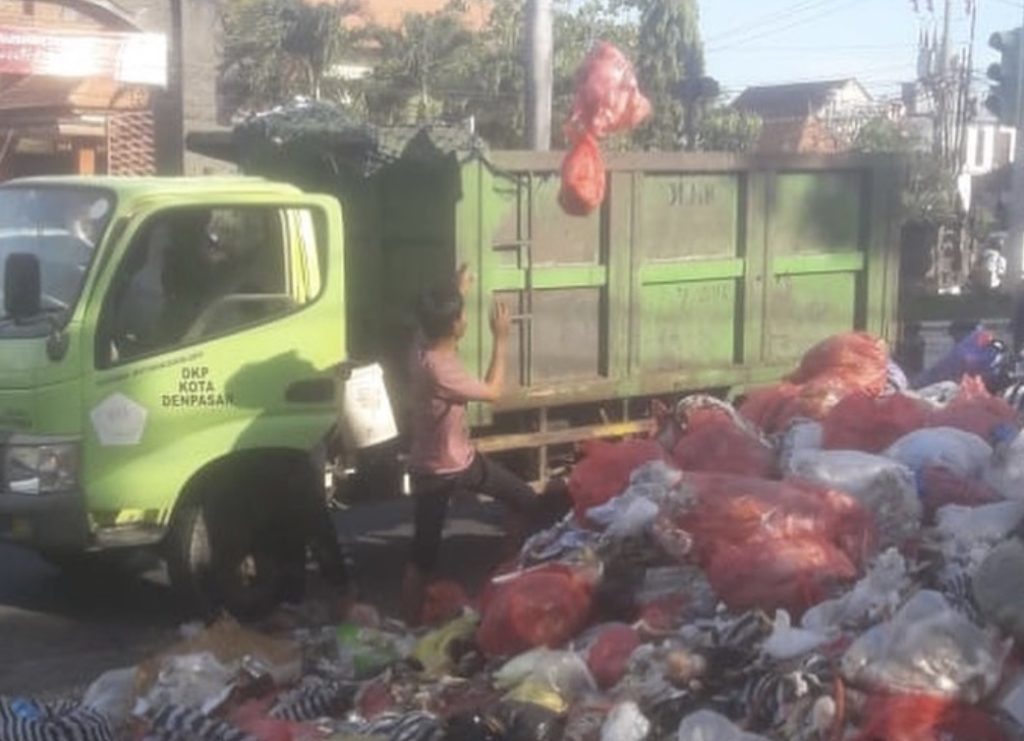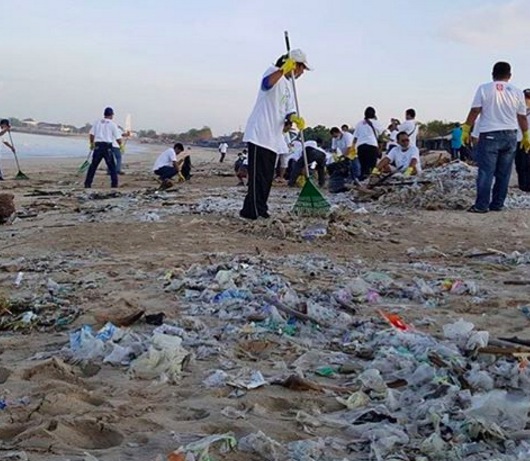Bali Governor I Wayan Koster has issued a new gubernatorial regulation aimed at managing waste in Bali, which mandates residents and companies on the island responsible for managing their own waste.
“It is only right, that whoever produces the waste is [also] responsible in managing or processing the waste until the end. If we are the one producing the waste, how can we ask others to take care of it?” Koster said during a press conference in Denpasar yesterday, as quoted by state news agency Antara.
According to the governor, Bali produces about 4,281 tons of waste daily but only around half are properly managed.
Of the waste that are managed, only about 164 tons per day are recycled, while the remaining 1,897 tons end up in a landfill. Meanwhile, the remaining, unmanaged waste are either burned or discarded on land or waterways.
The problem of waste management on the island recently resurfaced after a fire burned for three days at Bali’s biggest garbage dump, TPA Suwung, last month. An official from the local village said at the time that piles of garbage dumped there are almost never processed, resulting in the fire incident.

The 2019 Gubernatorial Regulation (locally known as Pergub) No. 49 on source-based waste management now aims to replace the old system of collecting, picking up and then dumping, and instead focusing on sorting trash and processing them, before they are headed for the landfill.
Under the regulation, residents are expected to sort their household waste and process them, and requires officials from local and traditional villages to educate their residents on the matter, while also providing supporting facilities, such as waste banks, or “bank sampah,” to help divide trash into organic and non-organic piles.
“This Pergub also regulates the producer’s responsibility in reducing waste by recalling the waste from their products and packaging to be recycled [or] reused,” Koster said.
He added that producers are expected to pick a local waste bank in every district or towns as a temporary facility for their waste.
As Indonesia’s top tourist destination, Bali’s rubbish issue has been exacerbated by mass tourism and rapid development. While the new Pergub aims to tackle the waste problem, effective implementation might prove yet another hurdle. For the time being, it looks like we’re going to have to wait and see.





Reader Interactions